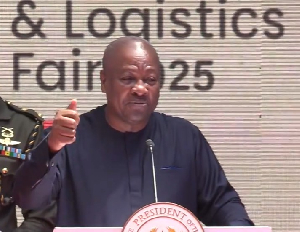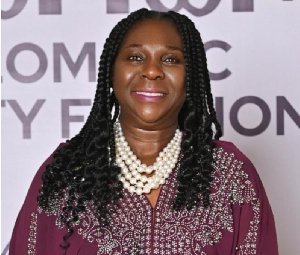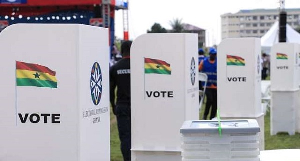The Peasant Farmers Association of Ghana findings has led to the government initiating a reward system for communities to provide key informant information on smuggled fertilizers.
This system is to combat the issues on smuggling that were rampant in the distribution of subsidized fertilizers.
Peasant Farmers Association of Ghana (PFAG) in its Monthly Update on Fertilizer Subsidy Programme for September 2020 said during the second week of August when the Association members were monitoring the fertilizer supply, the 25kg of NPK was being sold between GH?42 - GH?45 by many retailers depending on the location, instead of the fixed GHC42.
The Monthly Update publication dubbed: “Fertilizer Watch” is a summary of findings from real-time on-field monitoring by selected PFAG members to address issues of poor targeting, untimely delivery and access to subsidized fertilizer provided by the government on the Planting for Food and Jobs programme.
Mr Charles Nyaaba, the Head of Programmes and Advocacy, PFAG said the Association and SEND Ghana were jointly implementing a project that was harnessing the agency of farmers in demanding efficient and accountable utilization of budget resources for sustained improvement in subsidized fertilizer service delivery.
The project is titled: “Efficient Fertilizer Subsidy Programme for Enhanced Food Production by Smallholder Farmers in Ghana.”
He said the project was being implemented in seven Districts (Shai Osudoku, Hohoe, Pusiga, West Mamprusi, Sissala East, Mamprugu Magduri and Gushegu), across five regions and it was funded by the International Budget Partnership.
According to the implementation strategy of the fertilizer subsidy programme for the 2020 farming season, the distribution of subsidized fertilizer was scheduled to end in November 2020.
He said that notwithstanding, the programme came to an abrupt end in the last week of August 2020.
“This led to a shortage of subsidized fertilizer in the country, especially in the Northern part of Ghana,” he said.
Mr Nyaaba said though government funded fertilizer remained subsidized, it was sold at about 85 per cent instead of 50 per cent of market price per government policy and 2020 budget.
He noted that interestingly, Urea, which forms part of the fertilizer subsidy programme and was in high demand in August was not supplied by most fertilizer companies, as at the time distributing companies were directed to stop supplying.
The Head of Programmes and Advocacy said the majority of smallholder farmers, who were waiting to purchase Urea for top dressing in September were highly disappointed since most of the fertilizer companies promised to supply urea in September.
He said this year was more of open sales and there was no need for identification, saying, even non-farmers could easily exploit the subsidized fertilizer.
He said the development may limit the impact of fertilizer subsidies since the application of only NPK without urea could negatively affect crop yields.
“No information is available about the distribution across regions,” he said.
Mr Nyaaba said Management of PFAG presented reports of fertilizer smuggling especially at border districts in Northern Ghana, limited access of fertilizer by smallholder farmers and fertilizer hoarding to the Director of Crops on September 3, 2020, in his office.
He explained that some retailers have capitalized on the shortage of fertilizer to hike fertilizer prices.
“Security agents, fertilizer distributors and retailers, some staff from the District Department of Agriculture and some politicians were identified by PFAG as key partners in the fertilizer hoarding and smuggling business,” he added.
He said there was no information on fertilizer allocation to respective regions and districts and “this gives room for diversion and smuggling by retailers and their accomplices.”
The Programme Officer said based on their findings, the government has sent a committee to follow up on issues raised by PFAG in the various districts (Sissala East and West, Kassena Nankana West, Bawku and Pusiga) in Northern Ghana where fertilizer smuggling was rampant.
He said the Committee included officials of MoFA and the Bureau of National Investigations, where some fertilizer companies were invited and questioned on the smuggling issues.
He said PFAG presence in some districts led to price stability and availability of subsidized fertilizer for smallholder farmers.
Regional News of Sunday, 1 November 2020
Source: GNA
Reward systems for information on smuggled fertilizers instituted
Business

Malfunctioning AC, No Water: President Mahama bemoans poor state of World Trade Centre building
Entertainment










